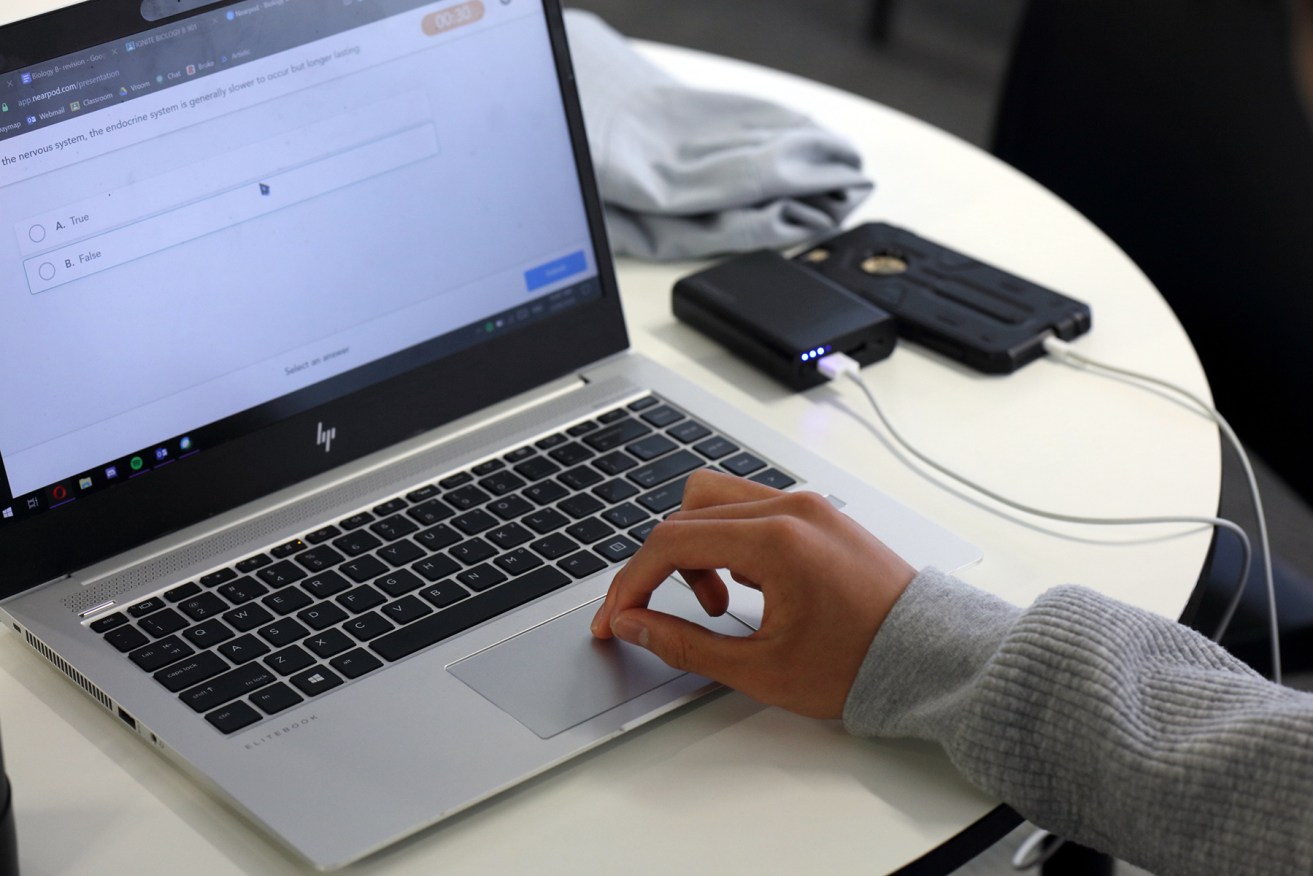Govt rejects legal push for remote document witnessing during pandemic
The State Government has dismissed a Law Society of SA call to allow legal documents to be signed and witnessed over audio and visual link during COVID-19 restrictions, saying such a move was unnecessary and could be exploited by “unscrupulous individuals”.


Photo: Tony Lewis/InDaily
Society president Tim White said in South Australia, documents still needed to be witnessed in the physical presence of two witnesses – despite federal and state hygiene and social distancing recommendations being at odds with the current law.
He said the Society was seeking temporary regulations similar to those passed recently in NSW, where a witness no longer needs to be physically present when witnessing the execution of certain documents – including wills, power of attorney, appointment of enduring guardianship, deeds and statuary declarations.
Instead, as part of the Electronic Transaction Amendment Regulation 2020, virtual witnessing has been allowed through platforms such as Zoom, Skype and FaceTime.
“The Society has also sought measures to allow for court documents, such as affidavits, to be signed electronically rather than requiring a physical signature, with appropriate procedures to ensure the veracity of the documents,” White said.
“NSW has already made such regulations, while Queensland and Victoria are also expected to introduce similar regulations shortly.
“These are extraordinary times that require novel solutions. We believe that interim measures could be adopted to allow for remote signing, with integrity safeguards in place that attest to the authenticity of legal documents.”
But a spokesperson for Attorney-General Vickie Chapman ruled out introducing such regulations in SA, telling InDaily that measures to limit the spread of COVID-19 needed to be weighed against protection from “unscrupulous individuals who may be more likely to take advantage of others in the current circumstances”.
“The Attorney will be advising the Law Society that no regulations will be made in relation to this matter currently,” the spokesperson said.
“The situation in New South Wales, which the Law Society points to for emulation, is very different than in South Australia.
“At the moment in SA, documents can be witnessed in a safe and physically distant manner whilst still complying with the law as it is currently.
“Further, through changes made in the COVID-19 Emergency Response Act a wider group of persons can witness documents.”
White said, during the coronavirus pandemic, SA practitioners had begun implementing a variety of measures to help reduce the spread of the disease.
He said appointment times had been reduced and lawyers relied heavily on phone conversations to provide clients with information.
But these measures still left lawyers and clients at risk of falling ill.
“While law firms have made arrangements to accommodate face to face witnessing where it is safe to do so, there are a number of situations where face to face contact would not be appropriate in the current climate, and it is most unfortunate that there are people who cannot have their instructions or statements validated, particularly if they are urgent,” he said.
“Lawyers have noticed an increase in enquiries about legal documents such as wills, powers of attorney, and advance care directives during this uncertain time, but a number of people – particular those in vulnerable circumstances – are understandably reluctant to sign and attest documents in person and risk exposure to the virus.”
White said by adopting the same reforms as NSW, South Australians would gain greater flexibility when seeking legal advice, which would be especially beneficial for people living remotely and those with health concerns.
Under the NSW regulation, a witness can use video conferencing to watch a person physically sign documents – but digital signatures are not allowed.
“It enables at risk people, whether they are elderly or have critically morbid health concerns, to still obtain access to legal assistance,” White said.
“There’s also a lot of explanation that goes with some of these documents, so that could happen via audio visual as well.
“One of the important things, particularly with wills, is insuring the person’s got the mental capacity to be doing what they’re asking to be occurring in the will – that’s a really important part of preparing a will and it’s a professional obligation to make enquiries to ensure they have the capacity to make the will.
“Obviously doing it in person is better, but audio visual certainly provides a better means through which to do that than over the phone.”
Want to comment?
Send us an email, making it clear which story you’re commenting on and including your full name (required for publication) and phone number (only for verification purposes). Please put “Reader views” in the subject.
We’ll publish the best comments in a regular “Reader Views” post. Your comments can be brief, or we can accept up to 350 words, or thereabouts.




